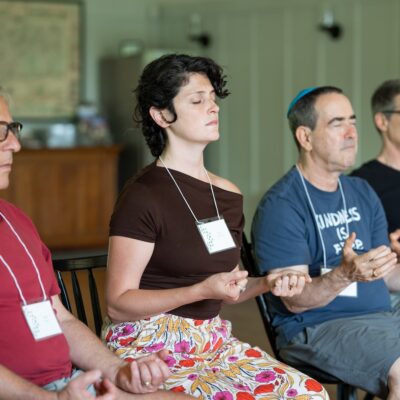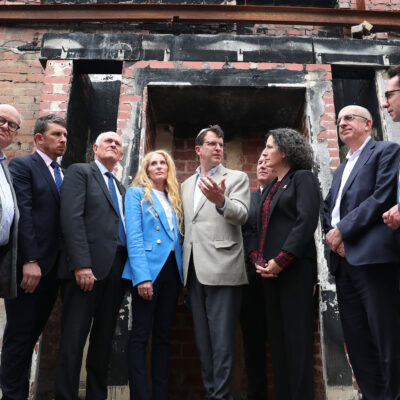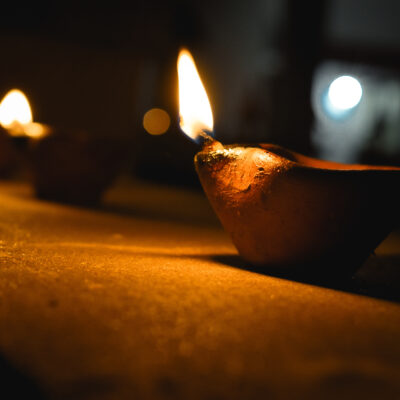Opinion
Torah is more than a career path

When I used to tell people about my dream to open a women’s beit midrash, a place where women can dedicate themselves to full-time Torah study, they were always enthusiastic about the idea at first. Then the follow-up questions would come.
“Will these women get college credits? Are you offering any kind of degree?”
“What will they do with this learning? Will they receive teachers’ training so they can add this to their teaching credentials?”
“Will they receive rabbinical certification so they can take on a clerical role? Will they be trained for other forms of community leadership, like yoatzot [halachic advisors] or toanot [advocates in the Jewish court system]?”
Offering college credits for Torah study is certainly useful, and training women to take on various educational and leadership roles is immensely valuable, but I wonder why we feel the need to justify women’s Torah learning by attaching it to a career goal.
Readers of a certain age or cultural background are probably familiar with “Oyfn Pripetchik,” a classic Yiddish lullaby from the late 19th century that describes a nostalgic scene of a rebbe teaching his young students the alef–bais. The song includes references to the tear-filled history of the Jewish people, and its final line is very telling of the culture in which Jewish children were raised and the significance Torah study played in the lives of Jews for centuries: “When you, my children, will bear the exile and will be exhausted, look at these letters and derive strength from them.” The letters of Torah were always seen as more than a subject of academic study — they are at the core of Jewish life and the key to Jewish survival.
In the introductory chapter of his book, The Essential Talmud, Rabbi Adin Steinsaltz describes the significance of Talmudic study in particular:
“The Jewish people have always been keenly aware that their continued survival and developments depend on the study of the Talmud and those hostile to Judaism have been cognizant of this fact. The book was reviled, slandered, and consigned to the flames countless times in the Middle Ages and has been subjected to similar indignities in the recent past as well. At times, talmudic study has been prohibited because it was abundantly clear that a Jewish society that ceased to study this work had no real hope of survival.”
Traditionally, Torah was not something to be studied at a university or specialized trade school. While some Torah scholars did take on community positions, the primary purpose of Torah study itself was not to train professionals, be they rabbis, teachers or judges. “Do not make [the Torah] into a crown with which to glorify yourself, nor into a spade with which to dig,” warn the Sages in Pirkei Avot (4:5). Torah lies at the heart of Jewish life, and its regular study is an integral part of our survival.
This explains the endless debates in the Talmud over legal minutiae that are well outside the realm of practical application. As Steinsaltz puts it:
“What were they aiming at, those thousands of sages who spent their lives in debate and discussion in hundreds of large and small centers of learning?… Study of Torah undoubtedly serves numerous practical purposes, but these are not the crucial objectives. Study is not geared to the degree of importance or the practical potential of the problems discussed. Its main aim is the learning itself.”
Today, there’s a small synagogue in Brooklyn, N.Y., where 16 women show up every afternoon to learn. They are not enrolled in a university, a teachers’ seminary or a rabbinical school. They are not looking to professionalize their Torah study. They are looking to experience authentic Torah learning, the way Jews have studied it for thousands of years. Traditionally, this place was called the beit midrash.
In many Jewish communities, this traditional approach to Torah study is embedded in the culture. Millions of dollars are raised yearly to support men who devote their lives exclusively to Torah study, without any career path attached. It is ingrained in their communal psyche that Torah study is a value in and of itself that is critical to the life of the community and requires no further justification. Yet, in an age when formal opportunities for advanced Torah study are finally opening up for women, it is hard to find anyone willing to fund women’s Torah study if there is no end goal in mind. Is this trend to orient Torah education for women around job training a step forward in the movement to advance women’s learning, or is it a step back?
Hadassah Shemtov is the co-founder and director of the Batsheva Learning Center, an in-person and virtual community for women centered around authentic Torah learning.

 Add EJP on Google
Add EJP on Google









